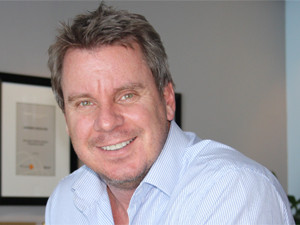
Brian Harding, MD of EOH MC, says the days of disappointing delivery on custom software development projects are long gone. "Now, software development is a mature and predictable field, and South Africa boasts a particularly strong software development industry," he says.
This is good news for businesses seeking to differentiate themselves through innovative business models and applications. "To stand out in a competitive market, businesses need their software customised to align with their systems and vision, and actually empower the business to become a disruptor in the market," he says.
Harding says local enterprises are fast discovering that bespoke software has an important role to play in driving business forward, and many companies are in effect built on software. "It's not easy to differentiate yourself when you're building your business on software everyone else has, which is why more companies are looking to software that uniquely supports their vision. Around 70% - 80% of our business is centred on custom software development for this reason," he says.
This does not mean there is no room for commercial software products, he notes. "When you're talking core financial or ERP systems, you'd be crazy to reinvent the wheel. But for the software that will differentiate your business and give you a competitive edge, you need to consider whether mainstream products or customised development will best serve your needs."
Harding points out that in many cases, the product route involves a lengthy decision-making process, followed by implementation and the discovery that existing systems and processes must be adapted to suit the new product. "If it turns out that the product isn't the right fit for the business but jobs are on the line over the investment, compromises are made to make that decision work. In effect, they are knocking a square peg into a round hole." This approach can add significant time and cost in an environment when businesses are seeking to move faster and operate more cost-effectively.
In contrast, custom development allows the business to match the software to the vision from the outset, which can prove far more cost effective and allow the business to move forward faster than when the business tries to adapt to suit the software, says Harding. "Fortunately, the barriers to entry to custom software can be relatively low. Companies can take an iterative approach, and get new applications to market quickly to determine whether they work for the business and its customers. This journey should start with the user perspective and experience in mind, meaning that the software is tailored exactly to your specific needs."
However, there are some challenges in developing custom software to underpin a new business innovation: "Businesses don't always know exactly what they want, or what is possible," says Harding. He recommends a thorough planning process involving both business advisors and reputable technology consultants to determine exactly what the business vision is and how software should deliver on this vision. "You need to identify the big idea and your goals, then assess the technology solutions, with a holistic view on achieving something cost effective that will hit the mark." He goes on to say that a 'fail early and change' approach that agile development offers, will help businesses arrive at the right solution. They don't have to nail their colours to the mast immediately, as they do with a product choice.
Harding believes that as businesses increasingly look to software to differentiate themselves in the market, demand for custom software will grow. "Custom dev is now a viable, cost-effective, predictable option that allows businesses to innovate, differentiate themselves and get early wins," he says.
Share
EOH MC Solutions
EOH Microsoft Coastal (EOH MC), formerly Airborne Consulting, was founded in 2004 and is a wholly owned subsidiary of EOH Mthombo, a company in the JSE listed EOH Group. Specialising in IT solutions across the Microsoft technology platform, EOH MC is the largest Microsoft development partner in the Western Cape, successfully delivering significant projects to a broad spectrum of businesses across diverse industry sectors. Its brand represents uncompromising quality, a commitment to excellence and an innovative approach to delivering real business solutions.
Editorial contacts